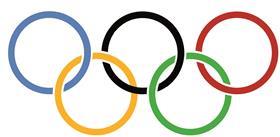Shadow business secretary calls for government explanation after 15% of firms rejected

The government has been called on to explain why 15% of firm’s seeking licenses that would allow them to market their work on the London 2012 Olympics have had their applications rejected.
Labour’s shadow business secretary Chuka Umunna this week tabled questions in parliament over the “difficulties” firms have had obtaining Olympic marketing licences.
Back in January, the government announced that it had struck a deal with the International Olympic Committee (IOC) to allow firms that worked on the London Olympics to obtain a new licence in order to circumvent a strict ‘gag’ on firms publicising their London 2012 work.
This move was widely hailed as a major victory with hundreds of companies applying for licences in the first few weeks.
But this week the British Olympic Association (BOA), which administers the scheme, admitted that 94 firms - or 15% of applicants – had been denied a licence by this week.
This is because the rivals of suppliers in the worldwide sponsor categories are not eligible for the licence.
The BOA said 435 firms had been approved and a further 83 applicants were under review.
This week Umunna called on culture secretary Maria Miller to detail exactly how many firms had been denied a licence and on what grounds.
He said: “It is greatly concerning that despite the government’s promise that firms would be able to refer to their Olympic work in marketing, many are still facing difficulties in doing so.
“Ministers took half a year to respond to [Olympic Delivery Authority chairman] John Armitt’s recommendations on Olympic marketing restrictions and it seems that the solution they have reached is already being found to be unsatisfactory.
“As more and more time elapses since the Games took place, the more urgent it becomes to get a solution which actually works for the businesses involved.”
A BOA spokesperson said: “When you look at the support we have had from the IOC and the British government and the fact that the approval rate has been running at greater than 80%, we say this is a huge success.”
Shadow business secretary Chuka Umunna tabled the following questions of Culture secretary Maria Miller:
- To ask the Secretary of State for Culture, Media and Sport what representations she has received from businesses on the operation of Olympic marketing licences
- To ask the Secretary of State for Culture, Media and Sport how many firms have submitted applications for Olympic marketing licences this year to date; and of these how many have been a) approved b) rejected
- To ask the Secretary of State for Culture, Media and Sport if she will list the grounds applications for Olympic marketing licences can be rejected; and list how many firms have been rejected this year to date for each of such grounds
Umunna said: “It is greatly concerning that despite the government’s promise that firms would be able to refer to their Olympic work in marketing, many are still facing difficulties in doing so.
“We want the great British firms which delivered the Games to be able to shout from the rooftops about it and to be able to use it to win orders across the globe. Ministers took half a year to respond to John Armitt’s recommendations on Olympic marketing restrictions and it seems that the solution they have reached is already being found to be unsatisfactory.
“As more and more time elapses since the Games took place, the more urgent it becomes to get a solution which actually works for the businesses involved. We want to see this put in place without more delay and ministers must address the ongoing problems which have emerged.”






















.jpg)



No comments yet